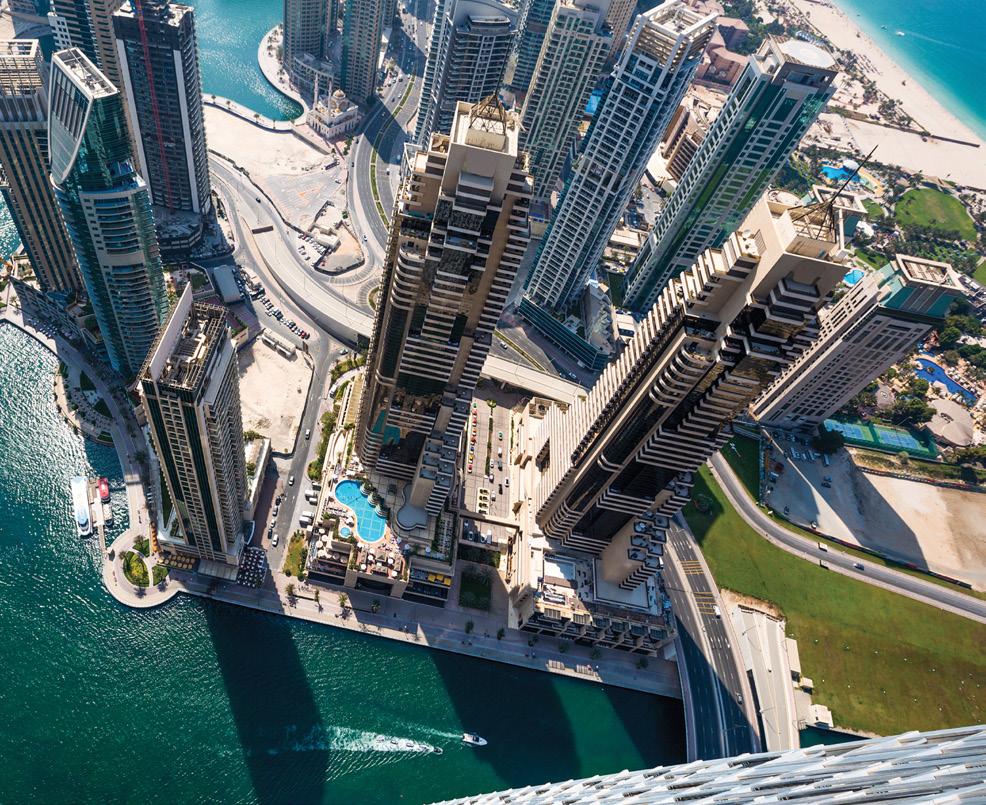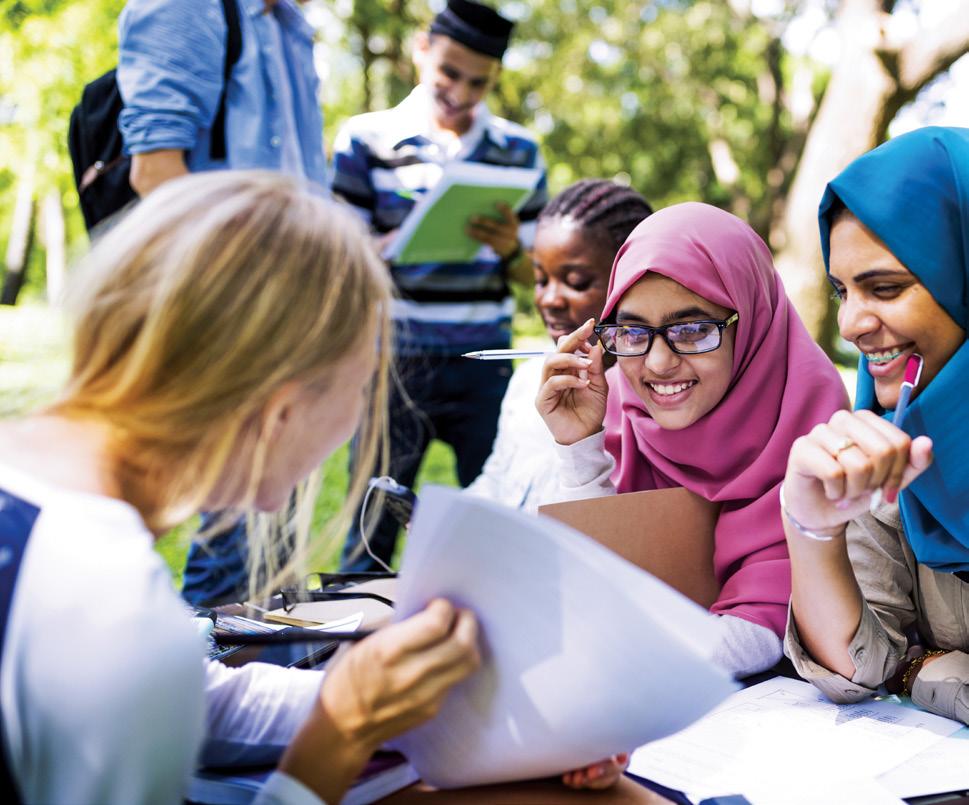
4 minute read
THE GLOBAL RESEARCHER
Carla Maria Issa G’15 | UNITED ARAB EMIRATES
Carla Maria Issa G’15 has a passion for research that has taken her across continents. In Dubai, she worked on a first-of-its-kind study linking the city’s real estate and education sectors – and in the process laid the groundwork for stronger communities in the city.
Throughout my academic career, I’ve thrived in an atmosphere where thoughts and ideas are constantly debated. I am driven by the desire to start conversations, to educate people about societal problems and to provide the data necessary to work toward resolving those issues. For a policy or industry to have a meaningful social impact, it needs to be built on extensive research. In my current role with Dubai-based real-estate advertising company Property Finder, I spearheaded a first-of-its-kind qualitative and quantitative research project – the 2019 Knowledge Economy Report – that looked at the city’s housing and education sectors in order to assess how closely house prices correlated with annual tuition costs at nearby schools. The project’s aim was to help both industries make informed decisions about the creation of new developments, though my personal investment was in the hope that our findings would start a larger conversation about enhancing the community aspects within Dubai.
My interest in research dates back to my undergraduate degree in Chicago. I truly enjoyed the process that came each semester of researching and writing term papers. My research questions sometimes led to me conducting independent studies with professors – ultimately, I pursued an MA in International Affairs at AUP to continue this process of research collaboration. I was passionate about studying an international subject somewhere far from home, and a respected American institution with an engaging faculty was the perfect place to do that. It was such a rewarding experience that I stayed in academia upon graduation: with the indispensable help of AUP’s Professor Ziad Majed, I was accepted for a second master’s program at the American University of Beirut. Throughout my academic career I have presented independent research at international conferences at the London School of Economics and at the American University of Cairo. Spending years studying the Middle East region in particular left me with a compelling interest in its future, which eventually led me to Dubai, a city that offers unprecedented opportunities as the government’s UAE Vision 2021 emphasizes a knowledge-based economy as the cornerstone of the country’s success in the digital age.

A property development in Dubai, UAE
The company I now work for is involved in real estate, but I found that many of the skills I acquired from studying politics and economics were easily transferable to my role as a senior research analyst – in particular, my familiarity with qualitative and quantitative research methods. My international experience studying across three continents was another key asset. The United Arab Emirates is unique in its demographic makeup as it is the country with the highest ratio of expats to nationals (9:1). Dubai is home to many international and regional corporations and has a growing housing sector that is competitive for both local and international investment. As the emirate grows, it is looking at long-term residency programs to encourage expats to live in the country for longer. The concept of creating stronger local communities has therefore peaked the interests of property developers and residents alike.
We hypothesized that housing developments and schools in Dubai were being built without considering the prices for either or whether a family who could afford to live in a property was interested in the curriculum, and could afford the tuition, at nearby schools. The real estate and education industries are closely linked under any circumstances, but for Dubai – which, as a city, is just 48 years old – this interplay takes on a deeper meaning. Dubai’s expatriate population is more mobile and more able to pick and choose amenities that match their budget than elsewhere. In the United States, for example, housing developments are part of a zone attached to a particular public school, one that is often within walking distance or serviced by bus. That picture looks different in Dubai as expats are schooled in private institutions, which parents select based on a curriculum and budget rather than choosing a property linked to a particular school district.

Alongside the education consultant, I worked on analyzing information provided by the Education Intelligence Group on Dubai’s education sector. The final report covered everything from the average property prices and annual tuition of nearly 200 local schools to advice for investors and school operators as to available school plots in Dubai. We included recommendations of the curriculum and price point at which to construct schools based on surrounding property prices in order to encourage suitable facilities within local communities. The study also included data from multiple focus groups and surveys of Dubai residents, as well as a statistical analysis of the responses to help stakeholders build schools that correspond to the needs of neighboring communities.
I am proud to have produced research that is having an impact on an exciting developing economy: the report has already been purchased by the world’s leading education provider as well as by a global banking conglomerate, and Dubai’s Knowledge and Human Development Authority is expected to review the report’s findings during its annual conference. I have now lived outside the United States for five years, all the while engaging with people from a multitude of backgrounds and navigating the intricacies of being an expatriate in multiple countries. With no plans to return to the United States anytime soon, I continue to conduct meaningful research because of the positive experiences I have had working with academics from all over the world. While I find my current role challenging and fulfilling, I look forward to pursuing a doctorate degree in the future with a view to leading research for an international organization or working as a university professor. No matter the destination, I’m committed to furthering that atmosphere of debate that has so inspired me throughout my career.










